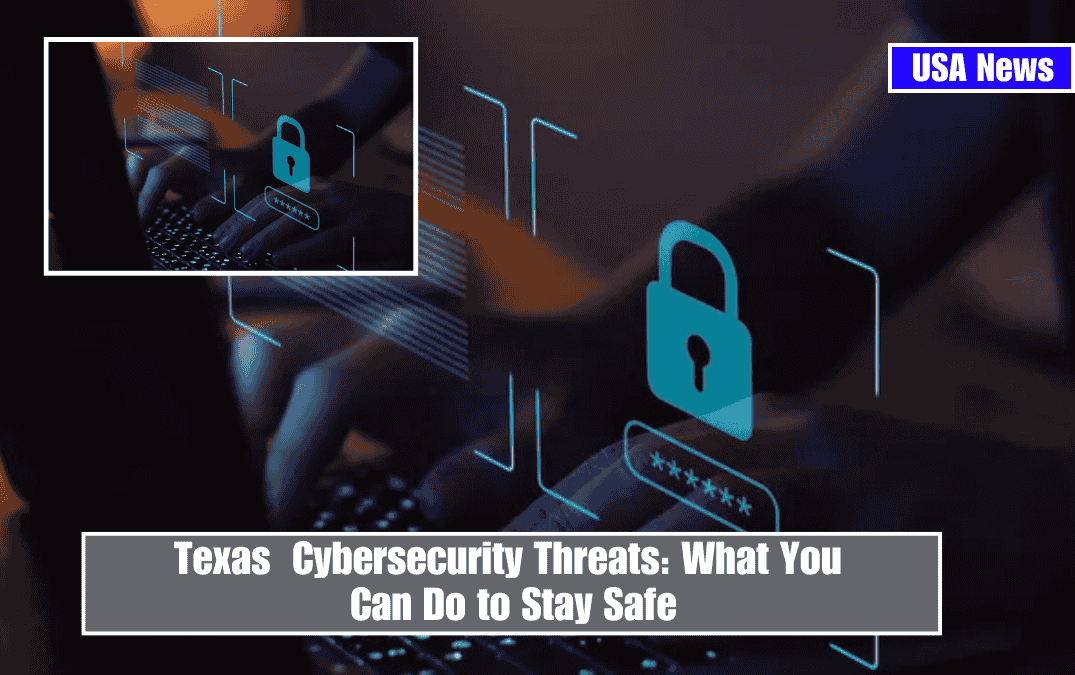Texas, as one of the largest economies in the world, faces a growing wave of cybersecurity threats targeting its critical infrastructure, businesses, and individuals. With attacks becoming increasingly sophisticated, staying safe requires proactive measures. Here’s an overview of the threats Texas faces and practical steps you can take to protect yourself.
Cybersecurity Threats in Texas
- Ransomware Attacks
Ransomware remains a significant threat, with attackers locking systems and demanding payment for data restoration. Recent incidents, such as the ransomware attack on the North Texas Municipal Water District in 2023, highlight the risks to essential services and sensitive data. - Phishing Scams
Phishing continues to be one of the most common methods used by cybercriminals to steal personal information. Fake emails and websites trick individuals into revealing sensitive data like passwords and financial details. - Attacks on Critical Infrastructure
Texas’ energy sector, water treatment facilities, and transportation systems are prime targets for cyberattacks. These sectors are vulnerable due to their reliance on interconnected systems, as seen in past attacks on water facilities and energy grids. - AI-Driven Exploits
Cybercriminals are increasingly using AI and automation to breach systems faster and more effectively. This has led to a 135% increase in AI-driven attacks in 2024 alone. - Supply Chain Compromises
Attacks targeting supply chains can disrupt businesses across industries, making them a growing concern for both large corporations and small businesses in Texas.
What You Can Do to Stay Safe
- Strengthen Password Security
Use strong, unique passwords for each account and consider passphrases that are at least 15 characters long. A password manager can help manage these securely. - Enable Multi-Factor Authentication (MFA)
Adding MFA to your accounts provides an extra layer of security by requiring a second verification step, such as a code from an authenticator app. - Stay Vigilant Against Phishing
Be cautious with emails—avoid clicking on links or downloading attachments from unknown senders. Always verify email addresses and use spam filters to block suspicious messages. - Keep Systems Updated
Regularly update software and devices to patch vulnerabilities that attackers might exploit. Enable automatic updates whenever possible. - Use Antivirus Software with Firewalls
Install reliable antivirus software that includes firewall protection to monitor network activity and block potential threats. - Secure Your Network
Avoid using public Wi-Fi without a VPN, disable Bluetooth when not in use, and ensure your home network is protected with a strong password. - Back Up Your Data
Regularly back up important files to encrypted cloud storage or external drives to minimize damage in case of ransomware attacks. - Raise Awareness Through Training
If you’re part of an organization, prioritize cybersecurity training for employees to help them recognize threats like phishing scams and implement secure practices.
Texas’ Efforts Against Cyber Threats
To combat these challenges, Texas has launched initiatives like the Texas Cyber Command, designed to anticipate and mitigate attacks through real-time threat intelligence, workforce training, and collaboration across public and private sectors. These efforts aim to bolster the state’s resilience against evolving cyber threats.
By combining personal vigilance with statewide initiatives, Texans can better protect themselves from the growing wave of cyberattacks threatening their digital security.
SOURCES:-
[1] https://www.infosecurity-magazine.com/news/texas-cyber-command-rise-attacks/
[2] https://dir.texas.gov/sites/default/files/2024-11/2024%20Cybersecurity%20Report.pdf
[3] https://www.security.org/digital-safety/cyber-security-tips/
[4] https://www.defense.com/events/texas-technology-summit-2025
[5] https://texas2036.org/texas-cybersecurity-a-look-at-the-future/








